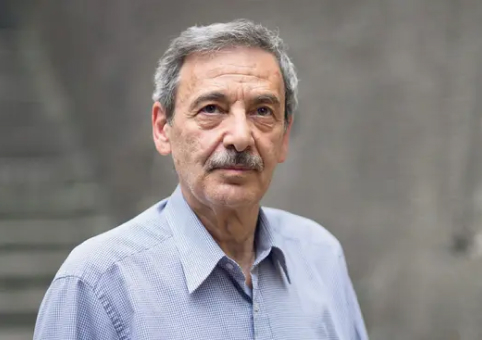Fawaz Haddad started writing early, but did not start publishing until much later (just over the age of forty). He does not have any kinship with the first generation in the new Syrian novel, such as Hanna Mina, Nabil Suleiman, Haider Haider, Hani Al-Raheb, Mamdouh Azzam, Khairy Al-Dhahabi, Walid Ikhlasi, and Khalil Al-Nuaimi, nor with the generations that came later, which began in the seventies and eighties such as Salim Barakat, Khaled Khalifa, Muhammad Abu Maatouq, Faisal Kharash, Khalil Sweileh, Salwa Al-Nuaimi, and Samar Yazbek. he is not very different from these generations in terms of themes, but he differs in the narrative structure, as he believes that he belongs to the “type of weavers who take work with patience. He has not stopped producing since he started writing, and works very diligently and silently, and is not preoccupied with the media and criticism that did not give him his due.”
Since he left Syria in 2012 (due to the Syrian revolution) he has devoted himself to writing completely, and has stopped any other daily work. He said about the audacity of his writings and what he described as his ignoring inside Syria: “Some of them were mean and poisonous, claiming that my audacity was nothing but a search for fame, even though I was running away from being known. They claim that they have not heard of my name, after I have five novels in my credit. In fact, I did not want to clash with the intelligence agency, lest I stop writing. More than one news has reached me that there are responsible parties who read my novels, including ministers and officers who are unaware that I am writing from Damascus, they thought I was from the opposition in Paris.”
In Explanation of the Nothing (the novel published in 2020), Fawaz Haddad presents “the possibilities of despair that leads to blindness to reality, that is, the possibility of overlooking the revolution and popular demands by intellectuals and artists.” This is illustrated by the tale of an academic historian and plastic artist. Both suffer from despair over the historical events taking place around them, and seek to escape from facing reality and the masses’ desire and demands for change. As is evident in the novel, this disregard for the catastrophic reality around them leads them to isolate themselves from reality, to withdraw into abstract thinking, and to abolish the self-mind to the point of obsession and madness. Fawaz Haddad says about his experience writing that novel: “In my novel, Explanation of the Nothing, it was necessary to contemplate the personality of the intellectual, why would he say one thing and do another? Why make excuses? How does he defend himself? Why does he deny his views? What about conscience? There is a defect within this type of intellectuals, they hide from it, and perhaps they do not know it, it is revealed to them when they are exposed to cruel or fateful choices, and their world collapses, not necessarily because of the revolution. ».
